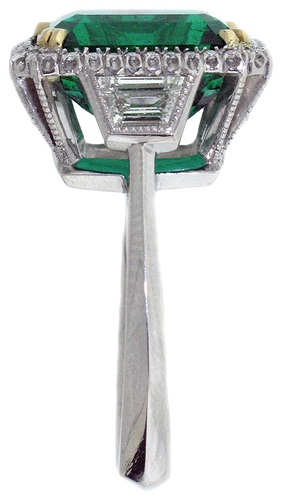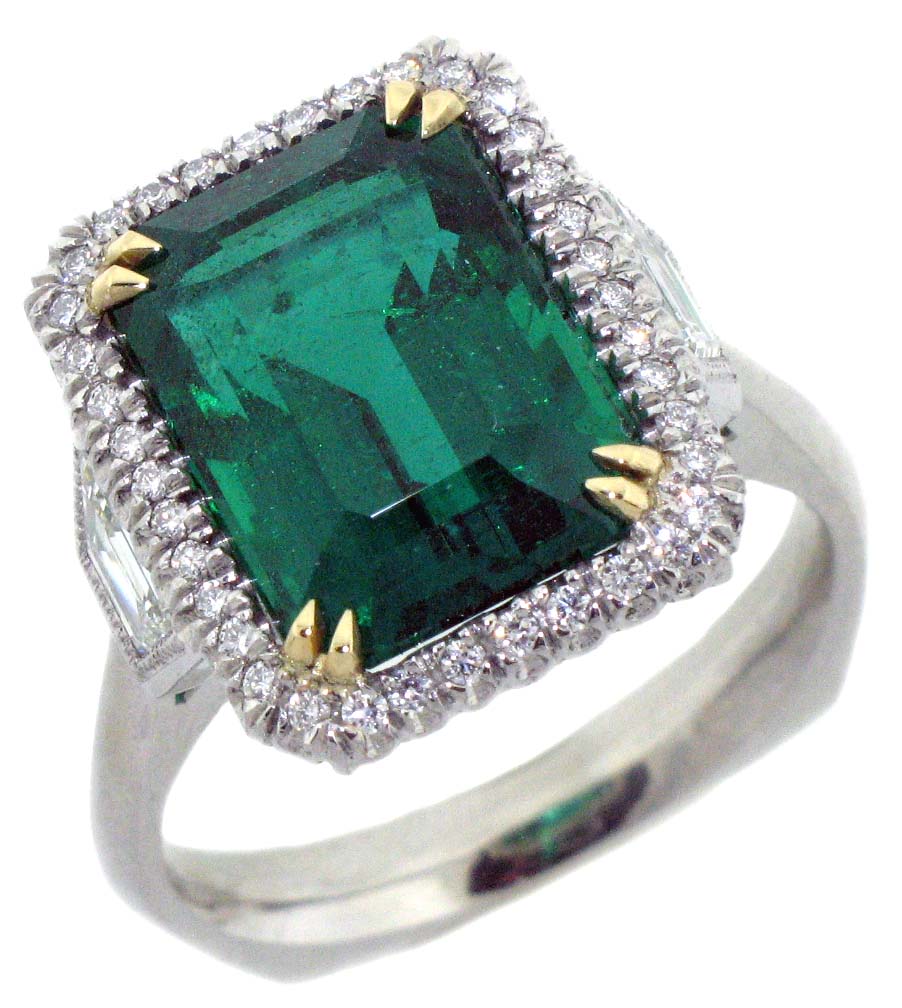Ask questions and share advice about anything jewelry-related.
I haven’t done silversmithing in 25 years and when I learned how to do it I was living in the states and just bought my wire and plate. I now live in Zimbabwe and today tried to alloy sterling silver. I have also just switched to using oxygen and propane. So when I was trying to alloy it I basically blackened everything. I started with 50 gramps incase I screwed it up. I picked up on piece and I can kind of dust off the black soot. What have I done wrong? Sorry I know this is a beginner question but I can’t find the answer online and there is nothing in my manuals and books that can help.
Hello lovely people,
I am a new member here and need some advice:
Our gold smith dips diamond studded rings into some boric acid solution before resizing them into a bigger or smaller size. As soon he heat solders the piece the boric sticks on the diamonds and does not come off despite exposing the ring to ultrasonic and steam cleaning. Even dipping the piece in ISO propyl alcohol does not clean the diamonds. As a result even white diamonds start looking gray and the lustre is reduced. Can you please help with a solution to this problem?
Regards.
Prasoon
Does anyone have or know of a tutorial for carving a simple basket ring mounting for an emerald cut stone?
There’s really no point to it. There are ready made settings for emerald cut stones available in a range of sizes from many findings houses. If you’re planning on casting the setting you might as well just buy one.
The best quality of finish, strength, and size appropriate to the stone will be had by fabricating the setting, not by casting it.
Elliot is right. Cast prongs are not considered very desirable in good jewelry. They have a tendency towards porosity and are not as secure. A die struck or fabricated crown is best.
So cast the ring, buy or fabricate the crown.
The piece attached was cast, but the prongs were fabricated and added later. My sweetie Timothy Green is a master wax carver in my humble opinion but he always fabricates the prongs.
Jo Haemer
Your ring is totally superb. On as “Scale of 10”, it’s about a 50…:>)
Congratulations ‘Piece of Wearable Art’…!!!
Gerry Lewy
Toronto, Ontario.
Canada.
NIce ring!
Hi there, I am a new member.
Has anyone gone through the process of getting their trademark registered in Canada nd willing to share some advice?
I will do a trademark search before getting my application in. Will I need to send my jewellery in for testing? Also, any labs you recommend, or is there one specifically for trademarking? I seem to be able to find more straight forward information on hallmarkingin the UK, than I can for in Canada. I have found all the steps, but these seem generic for trademarking any logo and are not specific to jewellery. Perhaps I need to read through the precious metals act again in more detail?
if you have any advice I will gladly take it. Thank you!
best regards,
Rosie
AFAIK, in Canada, as in the US, quality marks are left entirely up to the manufacturer. The various acts make it illegal to apply spurious marks, but they do not mandate that each piece be marked in an officially recognized facility as they are in Britain.
Trademarks and quality marks (aka hallmarks) are two different things and covered by entirely different laws.
thank you this helps. any recommendations on Canadian labs for metal testing?
Send me your email address and I’ll send you a contact here in Toronto!
I have two places you can pick!!
”gerrysdiamondsettingessays.blogspot.com”
Gerry, on my iPhone
you can send to jewelleryjunky@gmail.com. thank you!
and thank you! I would love to have your contacts in Toronto. I am not sure how to reply via email yet, so I posted my general email address for you to use. hope that works for you.
“Gold refiners & assayers” located in Toronto!
- “Gold Refining Inc.”
1-877-465-3497
416-642-3500
Jerry Stein
=======•=
- “Express Gold Refining Ltd.”
215 Victoria Street, ste #400
416-366-4000
416-363-0584
1-888-401-1111
Hoping that these folks help you. I know one more , but I don’t have his business card now. I’ll get name for you tomorrow.
Regards from North of the USA-Canada border.)
”gerrysdiamondsettingessays.blogspot.com”
Gerry, on my iPhone
Hello, I just joined the Ganoksin Community, and even after reading the FAQ’s, I feel unsure about the technical side of it. So, if I’m posting my first question incorrectly, someone please tell me. Glad to be here, looking forward to sharing our common interests.
Question: I’m considering starting to use jeweler’s mini-stakes that can be held in a vise, but am overwhelmed by the choices. I would like to start out by buying a couple, but don’t know which ones a beginner should start out with. Here’s a link to the page that I was looking at, to decide. I would appreciate your guidance. Oh, I need to add that I am not looking to use the stakes in creating large objects; I just want them to help me form metal for jewelry making.
Hello , what specifically do you want to accomplish with them? They are beautiful tools but if you are a beginner yo mig not need them , I have them and use them a lot for bending small details and medium bezels , but you can do ( with a bit more work and creativity ) almost the same with found materials like screws pieces of rebar or other metal scraps and save a lot of money , they are beautiful and use full tools but they are not “ necessary “ unless you get used to them ( they have become to me but I’ve managed very well before)
I would be interested in bending small details, or adding curves to copper and brass, as I make my jewelry. I am curious about what can be accomplished with a mini-stake, so I would like to try one out. Could you suggest a good choice for the first one? And if you could share some everyday items that can be used to form metal, that would be great.
Can I make copper or brass bezel wire using my rolling mill? If so, what wire gauge should I use? Thanks in advance for your interest.
Hi Kroma,
Yes, you can make your own bezel wire using wire or sheet. The gauge you use is really up to you. Keep in mind that copper and brass, like sterling, will take more effort to push over onto your stone than fine silver so you may not want to have anything heavier than 24g. If you’re planning to upset the bezel then the gauge you choose becomes more of a design choice than a functional concern. If you’re using the mill to flatten wire, you’ll create a pill shape, the bottom of which will have to be filed or sanded down once the bezel is made to make a good connection to a base plate. Unless, of course, you choose to use that rounded edge as part of your design.
Consider the stone as well when you’re choosing your bezel. Is the stone hard or soft, does it have any inclusions, how much pressure can it handle, or not?
There are no good color match solders for copper (that I’m aware of) and you may want to consider using gold solder for brass. If it’s a good solder seam it’s such a small amount of solder that the cost is negligible. Silver solder seams can be copper plated if they bother you.
Have fun experimenting,
Pam


